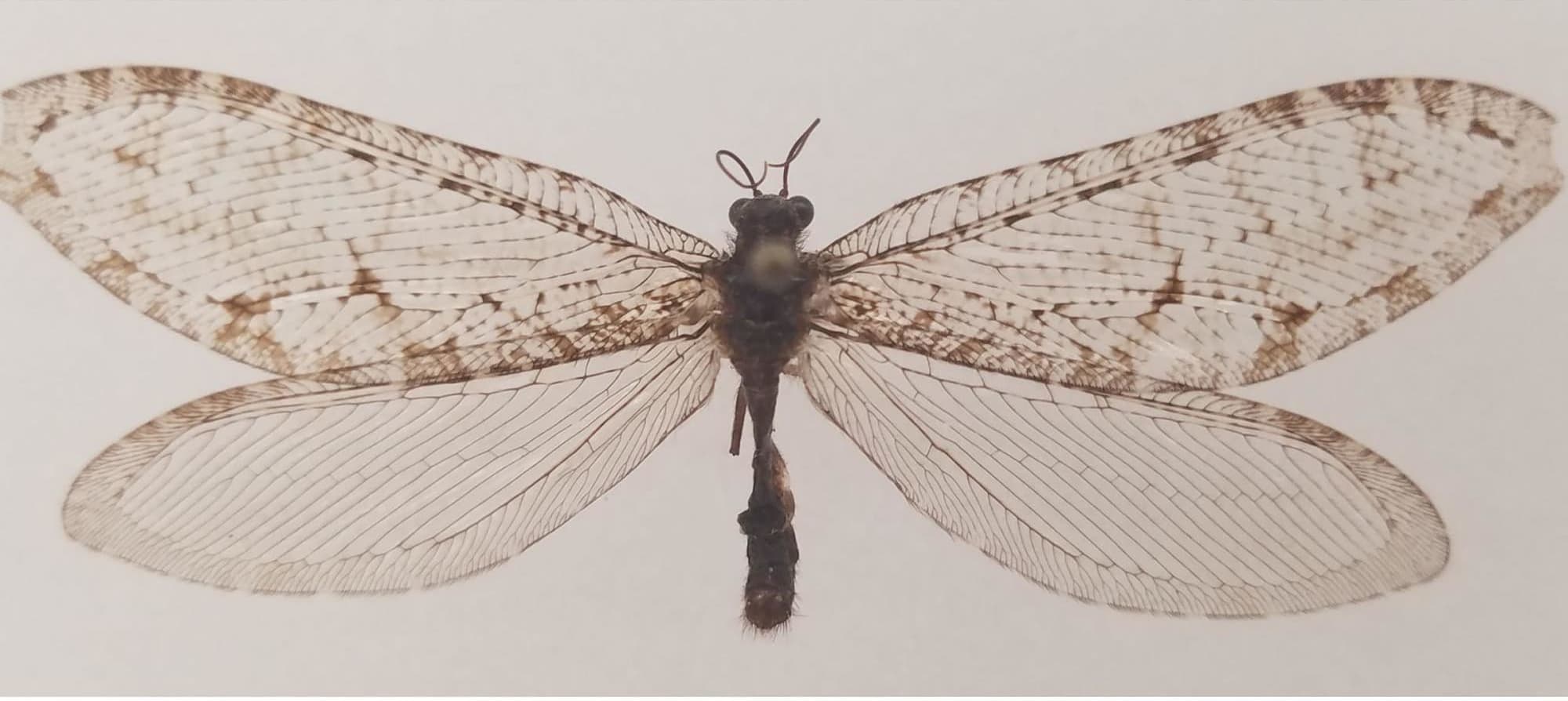Jurassic-era insect discovered at Arkansas Walmart

A free daily email with the biggest news stories of the day – and the best features from TheWeek.com
You are now subscribed
Your newsletter sign-up was successful
In 2012, Michael Skvarla, director of Penn State University's Insect Identification Lab, picked up what he thought was just an antlion — a fairly common flying insect — from the side of an Arkansas Walmart. But as it turns out, it was actually a Polystoechotes punctata, or giant lacewing, an insect from the Jurassic era.

Though once common, the giant lacewing "was mysteriously extirpated from eastern North America by the 1950s," according to a press release from Penn State. Skvarla's finding was the first of its kind in the past 50 years. Giant lacewing fossils date back to the Middle Jurassic era, over 160 million years ago. Fossil lacewing insects are also "much more abundant compared to living ones," per the authors of a 2018 study on lacewing fossil findings.
Scientists are still unsure why the insect disappeared, but have hypothesized that urbanization and habitat changes may have played a role. "Entomology can function as a leading indicator for ecology," Skvarla said. "The fact that this insect was spotted in a region that it hasn't been seen in over half a century tells us something more broadly about the environment."
The Week
Escape your echo chamber. Get the facts behind the news, plus analysis from multiple perspectives.

Sign up for The Week's Free Newsletters
From our morning news briefing to a weekly Good News Newsletter, get the best of The Week delivered directly to your inbox.
From our morning news briefing to a weekly Good News Newsletter, get the best of The Week delivered directly to your inbox.
Skvarla discovered he had misidentified the insect while teaching a Zoom class in 2020 when he noticed that the characteristics of antlions did not match up with the specimen he found. In 2022, he published his findings in the journal, Proceedings of the Entomological Society of Washington.
"This discovery suggests there may be relictual populations of this large, charismatic insect yet to be discovered," he said.
A free daily email with the biggest news stories of the day – and the best features from TheWeek.com
Devika Rao has worked as a staff writer at The Week since 2022, covering science, the environment, climate and business. She previously worked as a policy associate for a nonprofit organization advocating for environmental action from a business perspective.
-
 What to know before filing your own taxes for the first time
What to know before filing your own taxes for the first timethe explainer Tackle this financial milestone with confidence
-
 The biggest box office flops of the 21st century
The biggest box office flops of the 21st centuryin depth Unnecessary remakes and turgid, expensive CGI-fests highlight this list of these most notorious box-office losers
-
 What are the best investments for beginners?
What are the best investments for beginners?The Explainer Stocks and ETFs and bonds, oh my
-
 Russia’s ‘cyborg’ spy pigeons
Russia’s ‘cyborg’ spy pigeonsUnder the Radar Moscow neurotech company with Kremlin-linked funding claims to implant neural chips in birds’ brains to control their flight, and create ‘bio-drones’
-
 How roadkill is a surprising boon to scientific research
How roadkill is a surprising boon to scientific researchUnder the radar We can learn from animals without trapping and capturing them
-
 The ocean is getting more acidic — and harming sharks’ teeth
The ocean is getting more acidic — and harming sharks’ teethUnder the Radar ‘There is a corrosion effect on sharks’ teeth,’ the study’s author said
-
 Cows can use tools, scientists report
Cows can use tools, scientists reportSpeed Read The discovery builds on Jane Goodall’s research from the 1960s
-
 How climate change is affecting Christmas
How climate change is affecting ChristmasThe Explainer There may be a slim chance of future white Christmases
-
 Blue Origin launches Mars probes in NASA debut
Blue Origin launches Mars probes in NASA debutSpeed Read The New Glenn rocket is carrying small twin spacecraft toward Mars as part of NASA’s Escapade mission
-
 Why scientists are attempting nuclear fusion
Why scientists are attempting nuclear fusionThe Explainer Harnessing the reaction that powers the stars could offer a potentially unlimited source of carbon-free energy, and the race is hotting up
-
 Dinosaurs were thriving before asteroid, study finds
Dinosaurs were thriving before asteroid, study findsSpeed Read The dinosaurs would not have gone extinct if not for the asteroid
